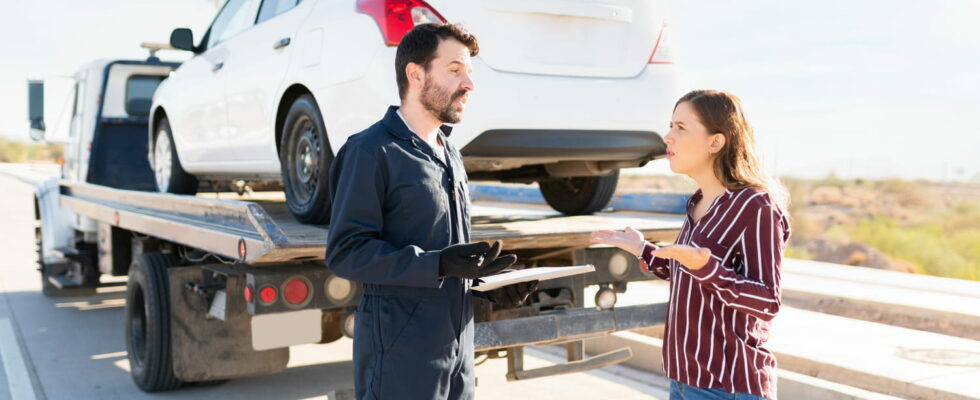No one is safe from a breakdown or a car accident. But beware because unscrupulous breakdown service providers are not hesitating to scam motorists in distress at the moment in France.
It’s a mishap that you wouldn’t wish on anyone. You’re driving along the road to your holiday destination when suddenly your car breaks down. After turning on your hazard lights, you pull over to the side of the road or to the emergency lane if you’re on a motorway, you carefully get out to safety and pick up your phone to call for assistance (112 on the motorway, your insurer’s number elsewhere).
Very quickly, a tow truck arrives, claiming to have been sent by your insurance. The tow truck then takes charge of your vehicle, repairing it on site or towing it to a garage. Everything seems normal, until the moment when he presents you with an exorbitant bill, to be paid immediately of course. Too late: you are the victim of the tow truck scam.
This new form of scam, which spread in France in 2024, is a real nightmare for motorists. The scammers, who are sometimes real tow truck drivers, use navigation applications such as Google Maps, TomTom or Waze to locate broken-down vehicles, particularly on expressways such as motorways, and then quickly travel to the scene. By pretending to be mandated tow truck drivers, they gain the trust of drivers in difficulty, who are often stressed and confused, and take their broken-down car with aplomb.
The trap closes when it comes to paying the bill. Instead of paying the usual rate covered by your insurance, you end up with a hefty bill, sometimes reaching several thousand euros. To avoid falling into this trap, it is crucial to know a few simple but effective tips.
First, pay attention to the markings on the tow truck. A real tow truck will always display the name of its company. If the truck is unbranded or has an unknown name, be wary. Next, check the speed of arrival. If the tow truck arrives surprisingly quickly after the breakdown, chances are that it is not legitimate and that it has been tracked by geolocation.
Your insurance is also a valuable ally. When you call, they will usually send you information about the intervention by text message or email, such as the name of the company hired and the estimated waiting time. If this information does not match what you see on site, do not hesitate to ask questions and contact your insurer for confirmation. It is always better to double-check before paying anything.
Also, if in doubt, ask the repairman to see proof of their mission. A true professional will not be offended and will understand your caution. Above all, ask for a quote before any intervention, and refuse to pay sums in cash or without a detailed invoice. Of course, it is not always easy to have clear ideas in stressful situations, but you can never be too suspicious.
